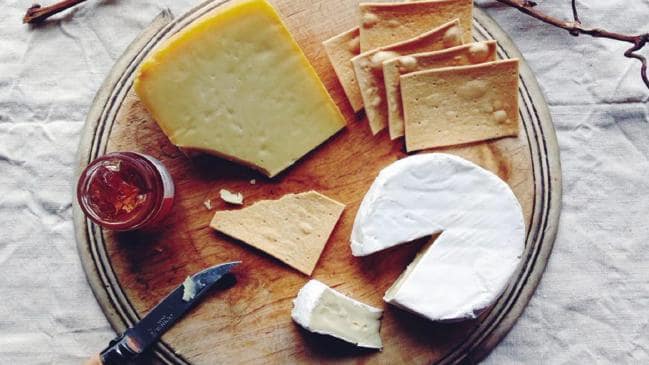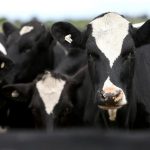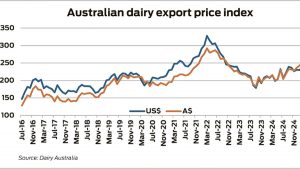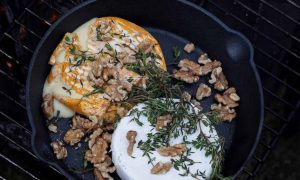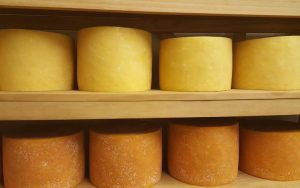
Who doesn’t love cheese?
Haloumi, goats cheese double brie, gruyere, camembert just a small handful of the hundreds of delicious varieties that tickle our tastebuds with their rich flavours, scents and melt in the mouth deliciousness.
For many of us though, cheese remains on the special occasion list, to be enjoyed sparingly thanks to its relatively high fat and calorie content.
Now research published in The Lancet has somewhat refuted the belief that cheese should be consumed occasionally.
Rather a study that examined the dietary habits of more than 130,000 people from 21 countries has found that eating at least two servings of dairy every day — including delicious cheese — resulted in a reduced risk of stroke and developing cardiovascular disease.
This suggests that whole dairy foods which includes cheese may offer health benefits that have not previously been considered when it comes to heart health.
So how much cheese should you actually be eating? One of the biggest issues with cheese (or most foods for that matter) is how much we eat of them.
A serve of cheese is 30g, or the size of a matchbox. This means that demolishing an entire round of brie is not the way to go. Damn.
Rather small portions minus the high fat crackers and dip which often accompany the cheese is the way to go.
When it comes to type, the choice is yours. There does not appear to be significant benefits associated with consuming low fat cheese, rather it is better to focus on smaller portions of the cheese you enjoy. Here are some of the popular types of cheese and how they stack up nutritionally.
Cheddar cheese
Cheddar cheese is high in protein (26%) as well as calcium and a number of key nutrients involved in bone development including magnesium and phosphorus. A single 30g serve of cheese) provides 8g of protein and more than 200mg of calcium, making it an extremely nutrient rich food choice.
Cottage cheese
Often forgotten, humble cottage cheese is one of the most nutrient dense foods you can enjoy. Made from the curd of milk, which gives it its loose, soft texture, cottage cheese contains more than 16g of protein per ½ cup along with calcium, magnesium and Vitamin B12, adding a serve of cottage cheese into your day is a great way to bump up your intake of essential nutrients for very few calories.
Haloumi Cheese
Nutritionally halloumi cheese contains slightly less fat (26%) than regular cheddar cheese but more than double the sodium content thanks to the brine used to preserve it. Haloumi is delicious and as such one of the biggest issues it poses is the risk of overeating as it is easy to demolish a 200g packet in a single meal which equates to an extra 680 calories, 54g of fat and almost 3000mg of sodium, hence when it comes to halloumi, portion control is crucial.
Feta cheese
Slightly lower in fat than cheddar cheese with 21% fat, like haloumi feta cheese is relatively high in sodium with almost double the salt content than that of cheddar cheese. Most commonly enjoyed in salads, feta cheese can be a calcium rich, tasty addition to salads and thanks to its rich flavour can easily be enjoyed fully in small amounts.
Goat’s cheese
Known as ‘chevre’ by the French Goat’s cheese is simply made by letting raw milk curdle, before pressing the curd and contains a similar fat content to that of feta cheese (18-21%). With its rather basic processing, the extra bonus of using goat’s cheese is that it contains very little salt. Another great thing about goat’s cheese is that its rich flavour means that you need very little, and hence can enjoy it as a spread or salad addition for maximum flavour for far fewer calories and fat.
Cream cheese
While reduced fat or ‘light’ varieties of cream cheese are available, in its natural state cream cheese is 35% fat with ¼ of the protein of regular cheddar cheese. Cream cheese is a relatively simple version of cheese, traditionally made with leftover milk which was soured using lemon juice or vinegar and then strained. Modern processing now sees cream cheese made with added emulsifiers and stabilisers to keep it consistent for purchase. Cream cheese lacks the protein of aged cheddar cheese and feta and for this reason; portion control is the key to avoid a total fat overload.
